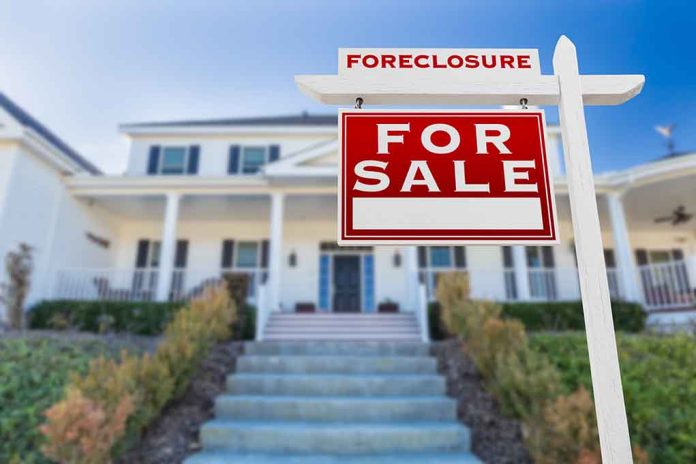
Facing Foreclosure? Don’t Give Up, You Have Options
(StraightNews.org) – Foreclosure rates rose recently, though they remain relatively low. Unfortunately, Americans are likely to see a steep rise in foreclosure rates in the near future. Each foreclosure represents a household facing eviction. Additionally, people who suffer a foreclosure have a more challenging time buying or renting a new home.
Avoiding foreclosure is something all homeowners attempt to do, but sometimes circumstances beyond their control make affording mortgage payments impossible. This can include a long-term illness, job loss, or other financial struggles. Regardless of the reason, affording mortgage payments can become suddenly unreachable.
If you are worried about this, keep reading to discover some tips to avoid foreclosure.
Budget and Prioritize
Those who can’t afford to make their mortgage payments should first decide whether keeping their home is a priority. If it isn’t, then short-selling may be an option. Short-selling or using a deed-in-lieu of foreclosure will not impact your credit as badly as foreclosure, though you will still lose your home.
If you need to keep your home, then developing a budget that cuts down on other expenses is an excellent way to avoid foreclosure. Especially if the budget constraints are short-term. Now, it is vital to ensure you are not giving up on other necessities when doing this. Cutting back on luxuries such as eating out or streaming services is one thing, but not paying your utility bill is another. The key thing here is responsible spending.
Negotiate With Your Lender
If budgeting does not suffice, or you cannot cut your budget enough to help. Many lenders will prefer to avoid foreclosure, too, as it is an extra expense for them. Properties sold under foreclosure are often sold for far under the remaining loan cost.
If you are having financial difficulties paying your mortgage, contact your lender immediately. Even if you are sure you will quickly make up the lost payments, it is better to be upfront about your problems before they become an issue. Don’t ignore the problem; your lender is less likely to negotiate with you if you are behind on your payments.
Most lenders are willing to work with you to modify your loan or offer a mortgage assistance program. While changing your loan may give you more debt in the long run, it will help you out of short-term trouble. Your lender may also decide to work out a payment plan, get a forbearance, or even refinance your home.
The Making Home Affordable Program
The Making Home Affordable Program is a program offered by the U.S. Department of Housing and Urban Development and the U.S. Department of the Treasury. The program gives access to counselors who can help you with your next steps and help you avoid foreclosure scams.
They can also tell you if you are eligible for the Home Affordable Modification Program. This program is designed to help people with long-term income loss or increases in expenses. This program coordinates with existing lenders on behalf of the recipient.
File for Chapter 13 Bankruptcy
Bankruptcy can be scary, but filing for Chapter 13 bankruptcy can be a great way to save your home. It gives people time to get current on their payments. Through Chapter 13, a payment plan is set up, allowing people to repay their late payments over three to five years.
This is recommended for people with enough money to stay current and pay off basic expenses, so people who got behind due to temporary situations are best suited to this path. However, bankruptcy should be a last resort, as it can significantly impact your credit score. Explore this option only if the other options have failed.
Avoiding foreclosure is essential to prevent homelessness and avoid long-term issues with your credit score. The best options are to talk to your lender or a housing counselor, but extreme circumstances may require stronger measures.
Copyright 2022, StraightNews.org













